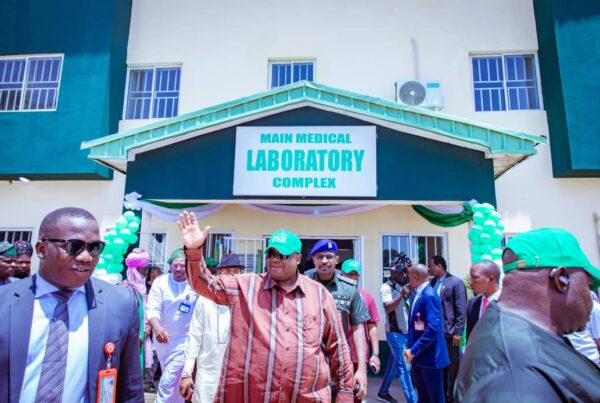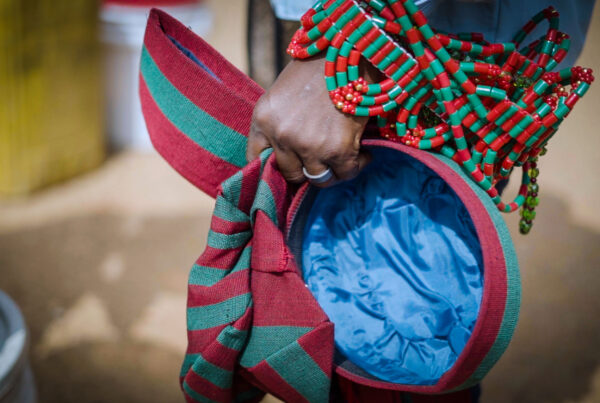Jos, Plateau State, in a landmark move poised to revolutionize Nigeria’s agricultural
export landscape, the Plateau State Government has entered into a strategic
partnership with the Federal Airports Authority of Nigeria (FAAN) to transform the
Yakubu Gowon Airport in Heipang into a bustling international cargo hub. This visionary
initiative, formalized through a Memorandum of Understanding (MoU), aims to unlock
the vast economic potential of Plateau State, significantly reducing post-harvest losses
and connecting local farmers directly to global markets.
Plateau State, widely recognized as Nigeria’s “Food Basket” due to its fertile lands and
temperate climate, has long grappled with the challenge of efficiently transporting its
abundant agricultural produce to international buyers. Annual food losses in Nigeria due
to inadequate market access and logistics infrastructure are estimated at a staggering
N3.5 trillion. This new partnership directly addresses this critical issue.
Under the terms of the agreement, the Plateau State Government will primarily be
responsible for financing the crucial infrastructure upgrades at the airport. This includes,
but is not limited to, the construction of a modern cargo terminal, expansion of existing
runways and aprons, development of cold storage facilities for perishable goods,
warehouses, and the installation of essential equipment such as cargo baggage X-ray
machines and advanced surveillance systems. FAAN, on its part, will provide
professional expertise, technical guidance, and security oversight for the project.
Speaking at the MoU signing ceremony in Lagos, Plateau State Governor Caleb
Manasseh Mutfwang underscored the historical significance of the Jos Airport, which
has served the region since 1972, and reiterated the long-standing vision to elevate it
into a global trade gateway. He highlighted his administration’s proactive establishment
of the Plateau Commodities and Marketing Agency, tasked with aggregating agricultural
produce for export, as a testament to the state’s readiness to embrace this
transformation.
Mrs. Olubunmi Kuku, the Managing Director/Chief Executive of FAAN, affirmed that the
project aligns perfectly with President Bola Ahmed Tinubu’s “Renewed Hope Agenda”
and the national goal of achieving a $1 trillion economy by 2030. She emphasized that a
major hurdle in Nigeria’s export ecosystem is the aggregation of sufficient quantities and
ensuring quality compliance, commending Plateau State’s preparedness to overcome
these challenges. Mrs. Kuku also extended a compelling call to investors, noting that
FAAN is actively engaging development finance institutions like the African
Development Bank (AfDB) to support infrastructure development and urged private
sector participation in tourism, logistics, and infrastructure that will connect rural
producers to international markets.
The transformation of Yakubu Gowon Airport is anticipated to yield a multitude of
far-reaching benefits. Beyond drastically reducing post-harvest losses and enhancing
logistical frameworks, it is projected to significantly amplify Nigeria’s agricultural export
revenues. The establishment of a dedicated and state-of-the-art food cargo hub will
position Nigeria as a more competitive player in the global agricultural market, attracting
foreign direct investment and fostering the growth of ancillary local industries.
Furthermore, this initiative holds immense promise for robust job creation, particularly
among Nigeria’s vibrant youth, across various sectors including logistics, cold chain
management, quality control, packaging, and agro-processing.
A key accelerator for this transformation is the direct synergy with the Special
Agro-Industrial Processing Zone (SAPZ) in Heipang, located right beside the airport.
This SAPZ will serve as a vital hub for sorting, processing, and packaging agricultural
produce to international standards. The seamless “farm-to-flight” value chain created by
the co-location of the SAPZ and the international cargo airport promises to enhance
efficiency, reduce costs, and significantly boost farmers’ incomes.
While the prospects are immense, the development of an international cargo hub in
Nigeria is not without its challenges. These can include high operational expenses, the
need for continuous infrastructure upgrades, and streamlining customs processes to
ensure efficiency and transparency. However, the strong collaboration between the
Plateau State Government and FAAN, coupled with proactive engagement with
investors and development finance institutions, signals a determined effort to overcome
these hurdles.
This strategic partnership represents a powerful declaration of economic independence
for Plateau State’s farmers and a significant step towards realizing Nigeria’s vast
agricultural potential on the global stage. When fully operational, the Yakubu Gowon
International Cargo Airport is set to be a game-changer, fostering sustainable economic
growth, improving food security, and solidifying Plateau State’s position as a premier
food cargo hub for West Africa and Africa at large.





